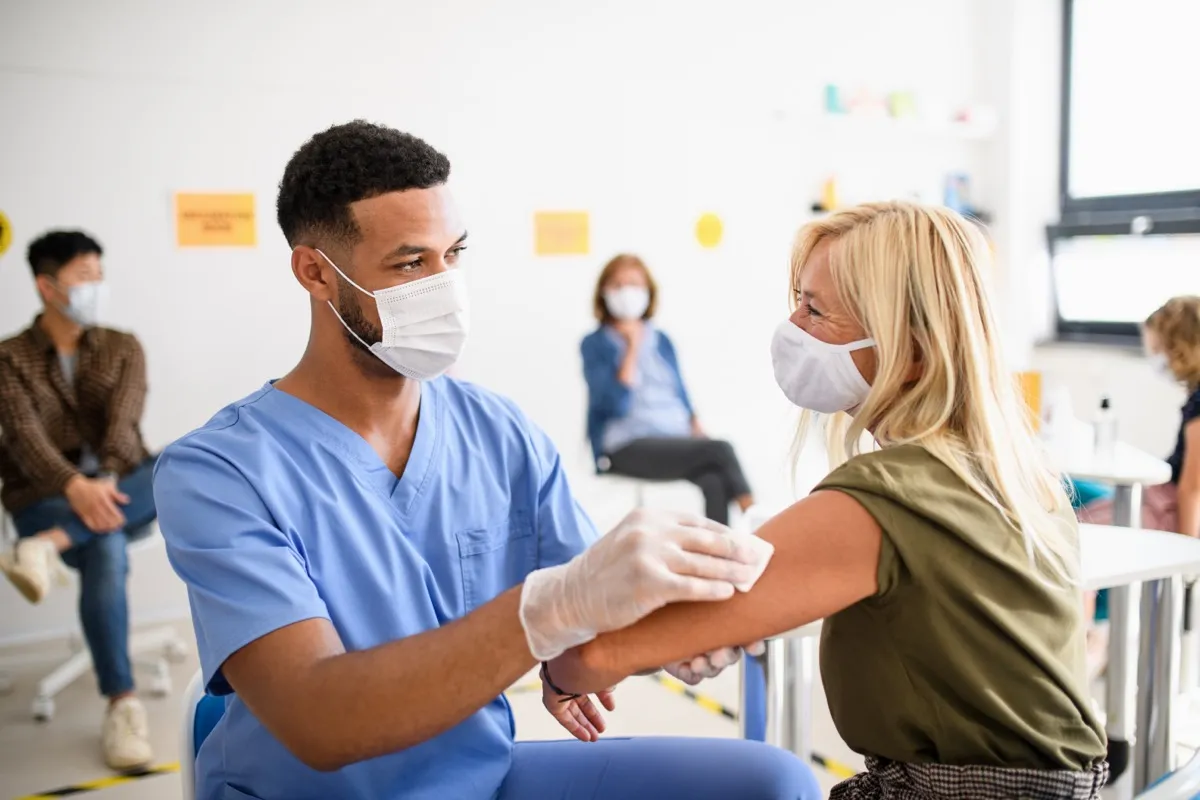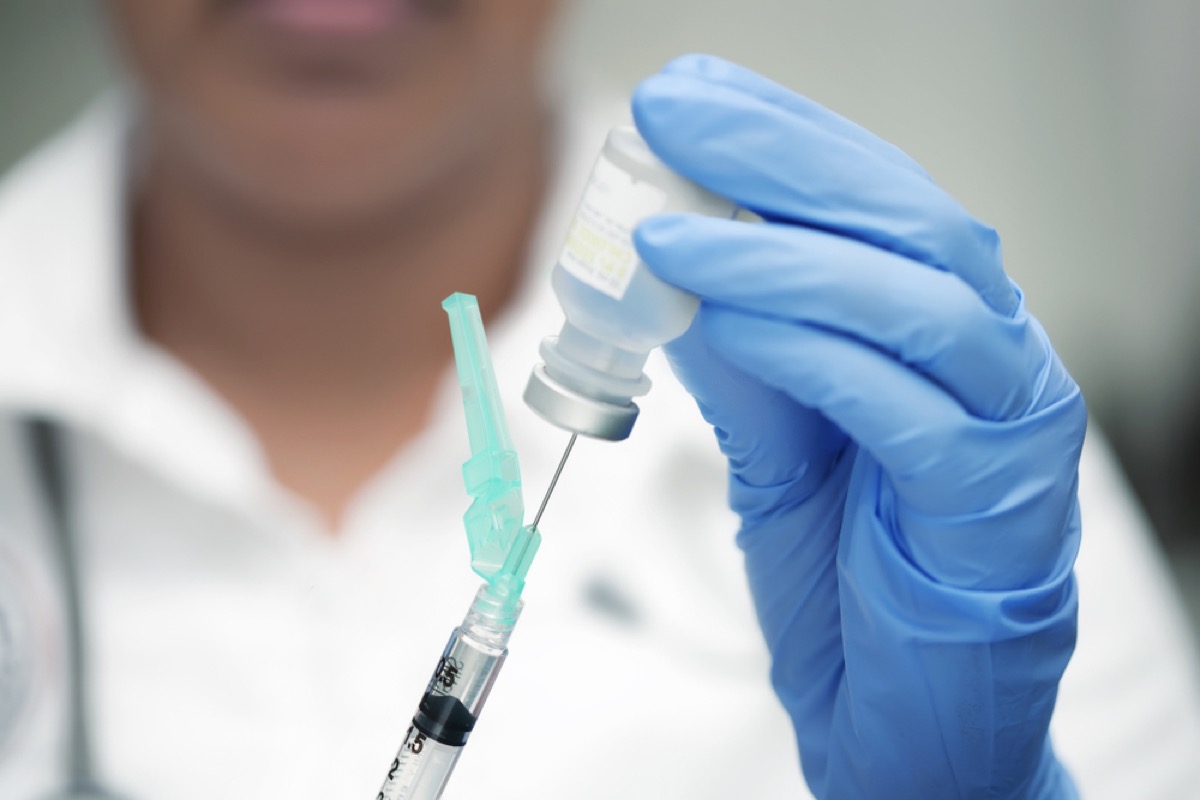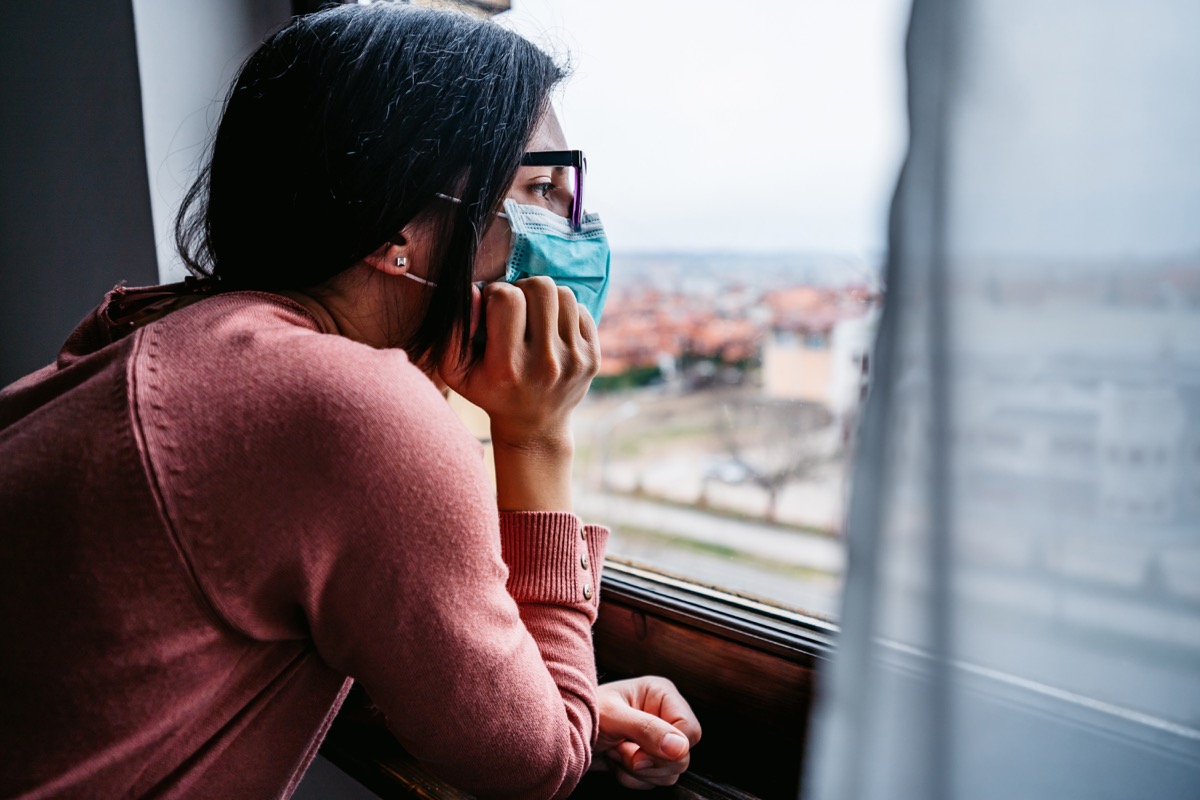A Mar. 24 survey about vaccine hesitancy, administered by Survey Monkey, has revealed that among Americans who are “not sure” about getting vaccinated, more are willing to be injected with the one-shot Johnson & Johnson vaccine (34 percent) than the Pfizer-BioNTech (24 percent) and Moderna (22 percent) jabs—both of which require two doses.ae0fcc31ae342fd3a1346ebb1f342fcb Another poll, which was done before the Johnson & Johnson vaccine obtained emergency use approval in the U.S., appears to back up Survey Monkey’s findings. The Kaiser Family Foundation published its KFF COVID-19 Vaccine Monitor on Feb. 26, and found that 26 percent of non-vaccinated Americans who were hesitant to get the jab were more likely to choose a vaccine requiring only one dose. “About a quarter (26 percent) of those who want to ‘wait and see’ before getting vaccinated say they’d be more likely to get a vaccine if only one dose was required (including 20 percent of Black adults, 28 percent of Hispanic adults, and 29 percent of White adults in the ‘wait and see’ group),” the analysis explained. And to find out how the vaccine may affect you personally, This Is Why Half of People Have Stronger Vaccine Side Effects, CDC Says. Research has shown that the Johnson & Johnson COVID vaccine, which was the third one to be approved for use in the U.S., has caused fewer side effects than its counterparts, which both use mRNA technology. In comparing the results of the three vaccines’ clinical trials, a recent report from The Guardian showed the Johnson & Johnson’s vaccine is the least likely to cause the top four most common side effects: pain at the injection site, fatigue, headache, and muscle soreness. “It’s better tolerated than the Pfizer or Moderna vaccine in terms of local, what we call reactogenicity,” Paul Goepfert, MD, the director of the Alabama Vaccine Research Clinic, told NBC News of Johnson & Johnson’s vaccine. “[It] causes less people to have a sore arm, less people have what we call systemic side effects, including fatigue, fever, myalgias, [and] headache.” And for more on how Pfizer patients have been affected, check out The One Side Effect That’s Much More Common With Pfizer, Data Shows. There were no reports of anaphylaxis in Johnson and Johnson’s clinical trial, while Modern and Pfizer’s trials did yield some rare instances of severe allergic reactions. That’s why Jessica MacNeil, MPH, an epidemiologist at the CDC’s National Center for Immunization and Respiratory Diseases, advised people who had an allergic reaction from their first dose of Pfizer or Moderna to get the Johnson & Johnson vaccine instead after 28 days. “In exceptional situations where the first dose of an mRNA COVID-19 vaccine was received, but the patient is unable to complete the series with either the same or a different mRNA COVID-19 vaccine, for example due to a contraindication, a single dose of Janssen’s COVID-19 vaccine may be administered at a minimum interval of 28 days from the mRNA COVID-19 vaccine dose,” MacNeil said at a CDC meeting last month, according to CNBC. And for more up-to-date COVID news delivered right to your inbox, sign up for our daily newsletter. Mary Rogers, a retired epidemiologist from the University of Michigan’s Department of Internal Medicine, spoke to MarketWatch recently about how “trynaophobia”—an extreme fear of needles—could affect people in need of a COVID shot. She explained how approximately two percent of adults in the U.S. have serious needle fears and people with this type of apprehension “have various degrees of anxiety or stress related to injections.” “I suspect that even one shot might prove to be a barrier for those with true needle phobia. However, for those with generalized needle anxiety, a single shot might encourage some to take the COVID vaccine that they might have otherwise avoided,” Rogers told the news outlet. An opinion contributor for The Hill, Dara E. Udo, MD, suggested that the Johnson & Johnson vaccine’s single dose provides an “initial robust response.” Additionally, since you are fully protected against COVID after two weeks of getting one dose of Johnson & Johnson or two weeks after getting your second dose from Pfizer or Moderna, it’s the quickest way to be protected against COVID. And for more on the future of COVID vaccines, check out Moderna CEO Says This Is How Often You’ll Need a COVID Vaccine.




